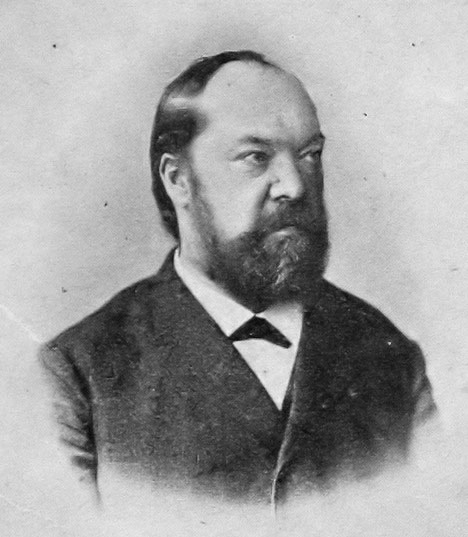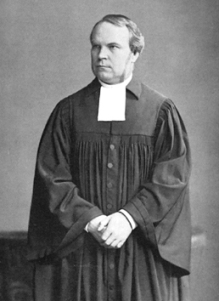|
German Federal Election, 1881
Federal elections were held in Germany on 27 October 1881.Dieter Nohlen & Philip Stöver (2010) ''Elections in Europe: A data handbook'', p762 The Centre Party became the largest party in the Reichstag, with 100 of the 397 seats, whilst the National Liberal Party, which had previously been the largest party, was reduced to 45 seats. Voter turnout was 56.3%.Nohlen & Stöver, p773 Results Alsace-Lorraine References {{German elections Federal elections in Germany Germany Germany,, officially the Federal Republic of Germany, is a country in Central Europe. It is the second most populous country in Europe after Russia, and the most populous member state of the European Union. Germany is situated betwe ... 1881 elections in Germany Elections in the German Empire October 1881 events ... [...More Info...] [...Related Items...] OR: [Wikipedia] [Google] [Baidu] |
Reichstag (German Empire)
The Reichstag () of the German Empire was Germany's lower house of parliament from 1871 to 1918. Within the governmental structure of the Reich, it represented the national and democratic element alongside the federalism of the Bundesrat and the monarchic and bureaucratic element of the executive, embodied in the Reich chancellor. Together with the Bundesrat, the Reichstag had legislative power and shared in decision-making on the Reich budget. It also had certain rights of control over the executive branch and could engage the public through its debates. The emperor had little political power, and over time the position of the Reichstag strengthened with respect to the Bundesrat. Reichstag members were elected for three year terms from 1871 to 1888 and following that for five years. It had one of the most progressive electoral laws of its time: with only a few restrictions, all men 25 and older were allowed to vote, secretly and equally. The Reichstag met throughout the First Wo ... [...More Info...] [...Related Items...] OR: [Wikipedia] [Google] [Baidu] |
German Progress Party
The German Progress Party (german: Deutsche Fortschrittspartei, DFP) was the first modern political party in Germany, founded by liberal members of the Prussian House of Representatives () in 1861 in opposition to Minister President Otto von Bismarck. History Upon the failed Revolutions of 1848, several deputies in the Landtag diet of Prussia maintained the idea of constitutionalism as it had been developed in the ''Vormärz'' era. In the 1850s, these Old Liberals gathered in a parliamentary group around Georg von Vincke, an originally conservative Prussian official and landowner ('' Junker''). Vincke, former member of the Frankfurt Parliament, a polished orator and firebrand, had fallen out with Prime Minister Otto Theodor von Manteuffel over his reactionary policies and in 1852 even fought a duel with Bismarck after a heated verbal exchange in parliament (both men missed). When under the regency of William I of Prussia from 1858 the Prussian policies of the new era turned ... [...More Info...] [...Related Items...] OR: [Wikipedia] [Google] [Baidu] |
Danish Party
The Danish Party (german: Dänische Partei) was a political party in the German Empire. History The party was established in 1871 to represent the 50,000-strong Danish population of North Schleswig, who remained opposed to their separation from Denmark following the Second Schleswig War in 1864.Vincent E McHale (1983) ''Political parties of Europe'', Greenwood Press, p415 It won a seat in every Reichstag elected between 1871 and 1912. Its best performance was in the 1881 elections, the only occasion on which it won two seats. The party disappeared after World War I, following the Schleswig Plebiscites The Schleswig plebiscites were two plebiscites, organized according to section XII, articles 100 to 115 of the Treaty of Versailles of 28 June 1919, in order to determine the future border between Denmark and Germany through the former Duchy of S ... and the return of Northern Schleswig to Denmark. References {{German Empire political parties Defunct regional parties in ... [...More Info...] [...Related Items...] OR: [Wikipedia] [Google] [Baidu] |
Christian Social Party (Germany)
The Christian Social Party (german: Christlich–soziale Partei, CSP) was a right-wing political party in the German Empire founded in 1878 by Adolf Stoecker as the Christian Social Workers' Party (german: Christlichsoziale Arbeiterpartei, CSPA). The party combined a strong Christian-right programme with progressive ideas on labour and tried to provide an alternative for disillusioned Social Democrat voters. Part of the Berlin movement, it increasingly focused on the Jewish question with a distinct antisemitic attitude. History In December 1877, Adolf Stoecker, domestic chaplain at the court of Emperor Wilhelm I and board member of the Evangelical Church of the Prussian Union, together with the economist Adolph Wagner had founded the Central Association for Social Reform (''Zentralverein für Sozialreform''), dealing with injustice and poverty after the Industrial Revolution. The organization was meant to counter the rise of the presumably revolutionary Social Democratic Part ... [...More Info...] [...Related Items...] OR: [Wikipedia] [Google] [Baidu] |
German-Hanoverian Party
The German-Hanoverian Party (german: Deutsch-Hannoversche Partei, DHP), also known as the Guelph Party (german: Welfenpartei), was a conservative, federalist political party in the German Empire and the Weimar Republic. History The party was founded in 1867 in protest of the annexation of the Kingdom of Hanover by the Kingdom of Prussia in the aftermath of the Austro-Prussian War.Vincent E McHale (1983) ''Political parties of Europe'', Greenwood Press, p420 They wanted the revival of the Kingdom of Hanover and the restoration of the sequestrated assets of the former ruling House of Welf. The party therefore was also called the ''Welfen'', and drew its strongest support from the rural areas around Hannover. In the Reichstag DHP deputies usually acted as allies of the anti-Prussian Centre Party parliamentary group under Ludwig Windthorst, who although a Catholic and leader of the Centre Party was a former Hanoverian Justice Minister who was loyal to the House of Welf. [...More Info...] [...Related Items...] OR: [Wikipedia] [Google] [Baidu] |
German People's Party (1868)
The German People's Party (german: Deutsche Volkspartei, DtVP) was a German liberal party created in 1868 by the wing of the German Progress Party which during the conflict about whether the unification of Germany should be led by the Kingdom of Prussia or Austria-Hungary supported Austria. The party was most popular in Southern Germany. Initially, the South German democrats supported the Greater German solution of the German Question. After the establishment of the German Empire in 1871 under Prussia, the solution which excluded Austria, it advocated federalist structures and defended the South German states' rights against increasing strengthening of the central government in Berlin. Insistently, the party demanded democratic reforms, in particular strengthening of the position of the parliament, which had no say in the formation of the government and no influence on government policies as the government was appointed and dismissed by the emperor alone. In contrast to the N ... [...More Info...] [...Related Items...] OR: [Wikipedia] [Google] [Baidu] |
Alsace-Lorraine Party
The Alsace-Lorraine Party (german: Elsäss-Lothringen Partei; also known as Elsässer) was a political party in the German Empire. History The party first contested national elections in 1874,Vincent E McHale (1983) ''Political parties of Europe'', Greenwood Press, p417 winning 15 seats.McHale, p434 It went on to win 15 seats in every election until 1890, when it was reduced to 10 seats. As more Alsatians emigrated to France, the party's support declined, and it never won more than 10 seats following the 1890 elections. When Alsace-Lorraine was returned to France after World War I, the party disappeared. Ideology The party represented the autonomist views of the French-speaking population of Alsace-Lorraine. It protested against the German government's policies on Alsace-Lorraine, Catholics and other ethnic minorities, and was frequently allied with the Danish Party, the German-Hanoverian Party and the Polish Party The Polish Party (german: Polnische Partei) was a political ... [...More Info...] [...Related Items...] OR: [Wikipedia] [Google] [Baidu] |
Polish Party
The Polish Party (german: Polnische Partei) was a political party in the German Empire and the Free City of Danzig. Representing the Polish population in Germany, it was the largest of the minority parties. History The party had its origins in the national associations that were established during the 1848 revolution, but was formally established when the first Reichstag was elected in 1871.Vincent E McHale (1983) ''Political parties of Europe'', Greenwood Press, p428 It won 13 seats in the elections, the lowest number of seats it held in the Reichstag until World War I. Its best performance was in the 1907 elections, when it won 20 seats.McHale, p434 Following the war and the loss of Polish-dominated territory to newly established Poland, the party ceased to exist. Ideology The party opposed the Germanisation and secularisation policies of the government, seeking to protect the rights of Poles living in Germany. It was usually allied with the Centre Party and other minor ... [...More Info...] [...Related Items...] OR: [Wikipedia] [Google] [Baidu] |



